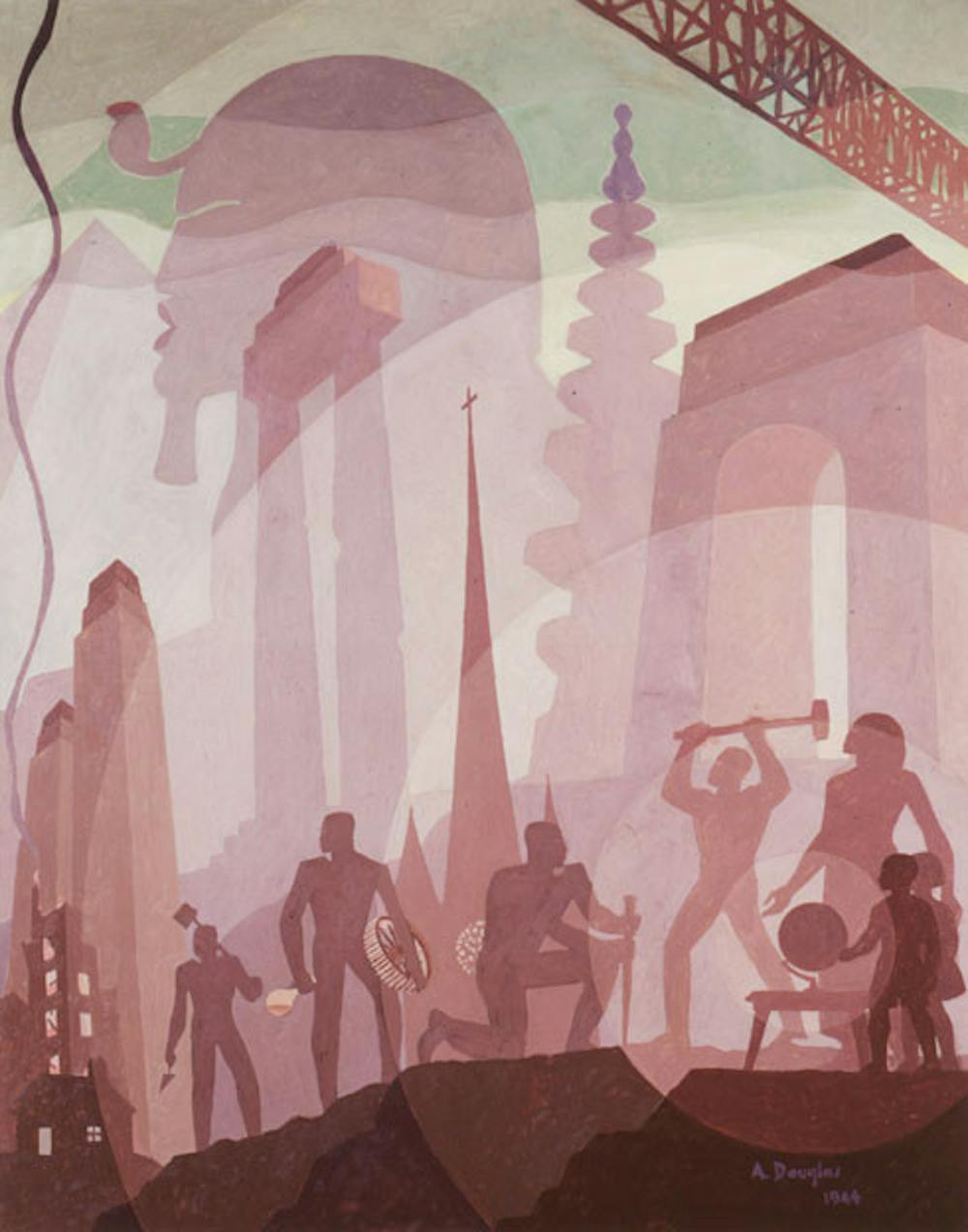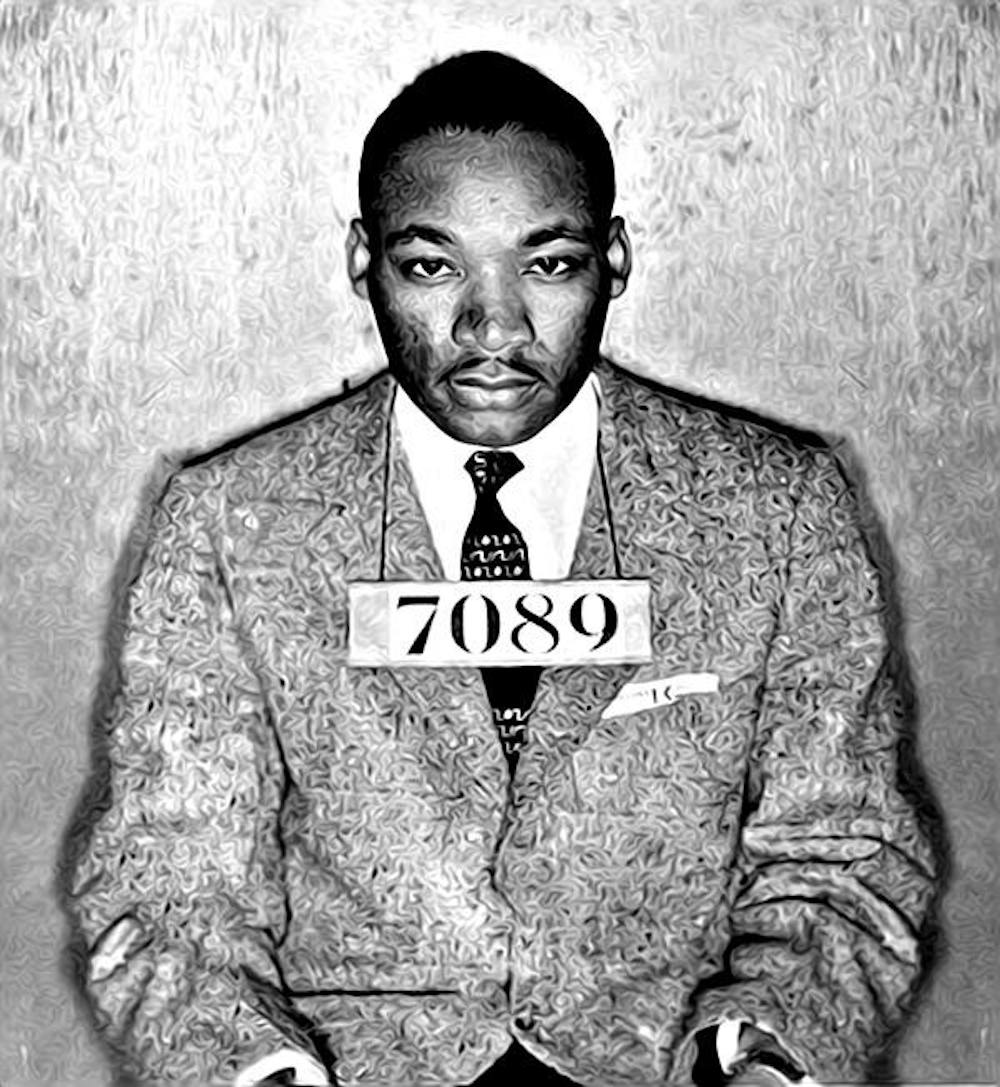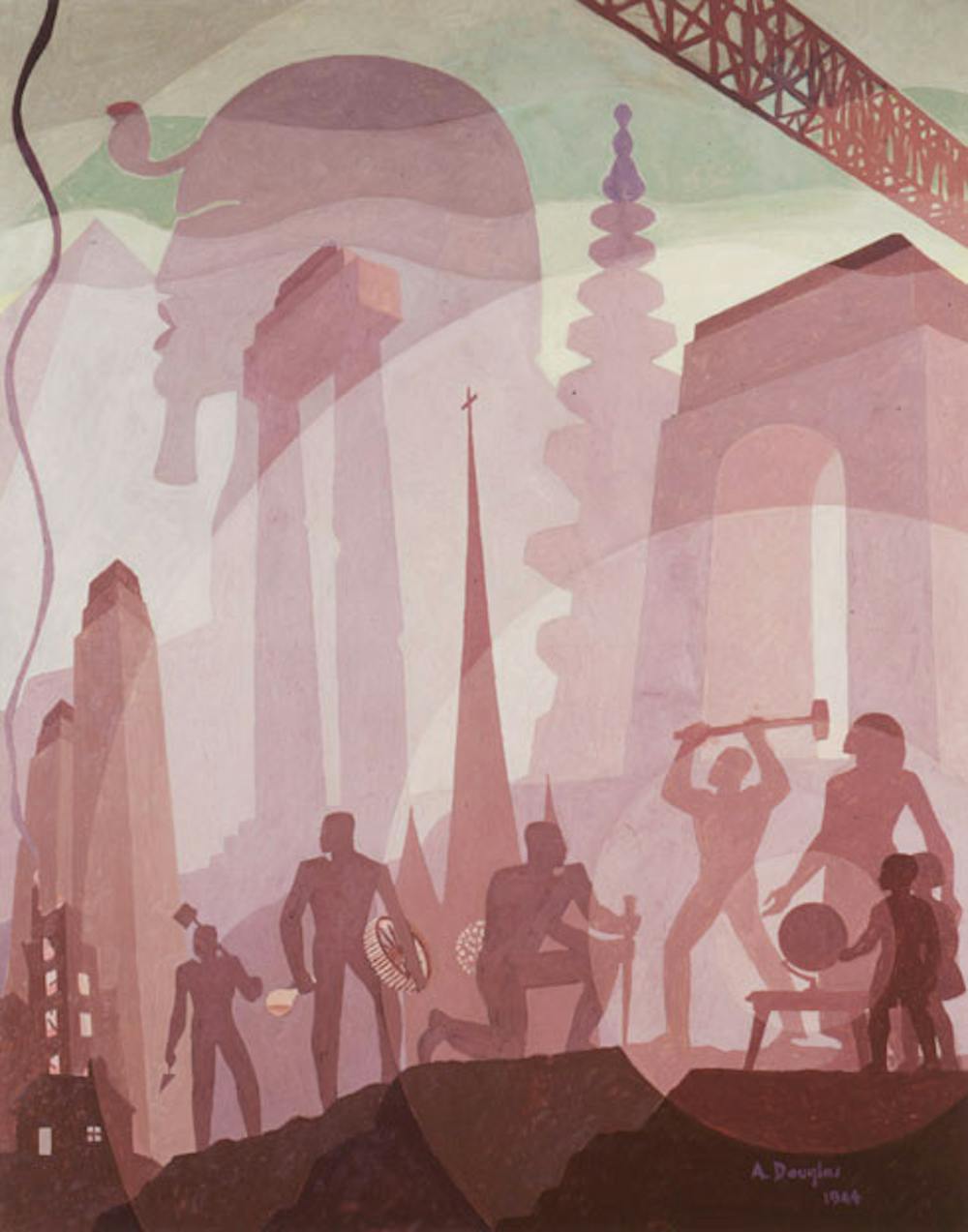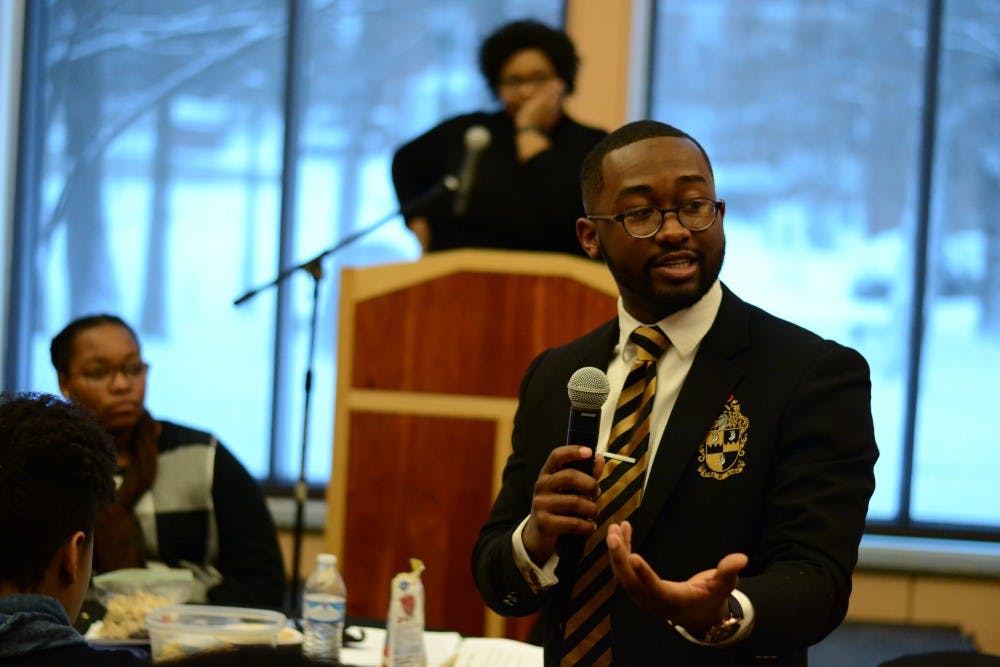
Calvin Sanders is a Senior in the Kelley School of Business who dedicates a great deal of his time to serving the community and promoting and bettering the experiences of students of color. Such a short description does not serve him justice, however. Here are some highlights from my interview with Calvin Sanders:
- -
MH: What are the roles you hold here at Indiana University?
C: Currently I serve as the President of the Gamma Eta chapter of Alpha Phi Alpha Fraternity, Incorporated, a historically black fraternity. I also serve as the advisor to the Vice President of Congress for the Indiana University Student Association [IUSA]. I am also parliamentarian in the National Pan Hellenic Council. That's the association of historically black fraternities and sororities
MH: During your time at IU, what would you like to accomplish?
C: There are the obvious accomplishments people want in the academic sphere – graduating, learning something tangible to apply to the "real world" afterward. I think in my extracurricular life you can see in the arc of my involvement that I've really wanted to use the skills and maybe the luck and blessings I've had as an individual to do a number of things. Whether it's helping sustain the student government, supporting the fraternity that I'm in and its values of community service and academic success, or really just working with other leaders of colors to make sure in spaces where you're a minority, and I'd argue in Bloomington a hyper minority, that there's that internal support, whether academically or extracurricularly that someone can know Calvin Sanders is a resource and someone who can help out. I've been blessed to have these roles and to be able to be at these integral junctures where interests meet. I want people to see the goals that I've worked on are not just for me to work on, but that the torch can be passed on.
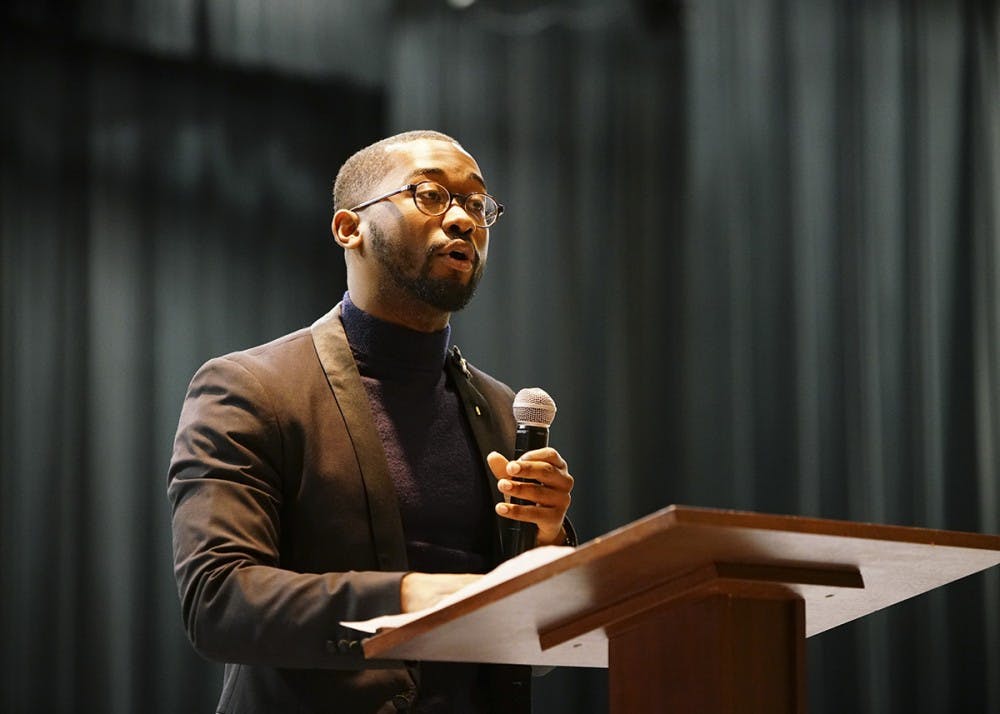
MH: That said, during the 2017-2018 school year what are some of the challenges that have been presented to you as well as what do you think you have accomplished?
C: The beginning of the year was the beginning of my tenure as being President of my fraternity. A deep investment in community and focus on community service is key in this position. As I started in this role, I was essentially the CEO of a small nonprofit. We only have seven brothers, so we had a lot on our plate, so we set goals for ourselves, increasing leadership within and without the fraternity – we all have to step up being only seven. We have two brothers involved in the Black Student Union, another brother deeply involved in IMPACT, a Bible study focusing on the minority community at IU. So, we've made it to where, yes you may be in our organization, but you need to be dedicated to community service. We had a lofty year goal for over 300 community service hours, and we're currently at about 220. On the IUSA side, I've primarily been working in the legislative branch. As of right now, our most pressing concern is the revision of our constitution. We're trying to hit two major goals – making sure people care about IUSA who are not already involved, and that IUSA works better to help all those stakeholders, every student that's here, and working with having a cohesive relationship with administrators so we may best capture student voices and translate them into policies.
MH: Being involved in several very interactive groups, what importance does collaboration play in the various domains you operate in?
C: When people think of IUSA and all of these storied institutions at IU that play such a big role, it's kind of easy to close the frame and hyperfocus, but when you get down to the facts, as a student government and Greek-letter organizations, we're a small town. There are so many problems that we're trying to fix, and when you're coming at an issue, the best thing to do is collaborate. We may have our opinions and ways of doing things, but it's important to look at how others may execute differently. Being in this hybrid position of being in a more institutional role [IUSA] and then an entrepreneurial role [Gamma Eta], it makes it so there are common things we want to effect, and I'm in that middle place and get to see how both of them work and try to create that synergy.
MH: As a black male, how do you operate in a domain such as Bloomington that, for all its progressiveness, is still in Indiana?
C: So first I wouldn't just want to focus on my experiences as a black man but as a person of color. Many of the concerns I have are shared by women of color, for example. Personally, there's that buildup of microaggressions that you have going here. I grew up in a middle-class family surrounded by a community that was more economically depressed. It made it to where from elementary to middle school, I attended educational institutions that were made up of predominantly people of color. I was always sort of that weird kid, speaking "proper English." I had double consciousness as a person with middle-class status but also being black. There was that question of "Calvin are you really black?" That came to hyper-focus in my high school. I attended Munster High School in Munster, Indiana. I was only one of a dozen black men in high school and the only one in my honors and AP courses, so it made it that my experiences were unique compared to many other students of color in that I already had that culture shock of going from a classroom with students like me to one where there are wholly different perspectives. I think that's something a lot of students of color contest with here, wherever you come from, you come from a place of shared culture to a place like Bloomington, where, although there is shared culture, it's different. When people look at you differently, they may treat you differently. For myself, the fear of aggressive actions toward myself dictates what I do, where I go, and how I go about doing things. For example, I enjoy running, but I have to be conscious of what I wear when I run. Like a lot of people, looking to what Dr. King said, I just want to be seen by the content of my character.
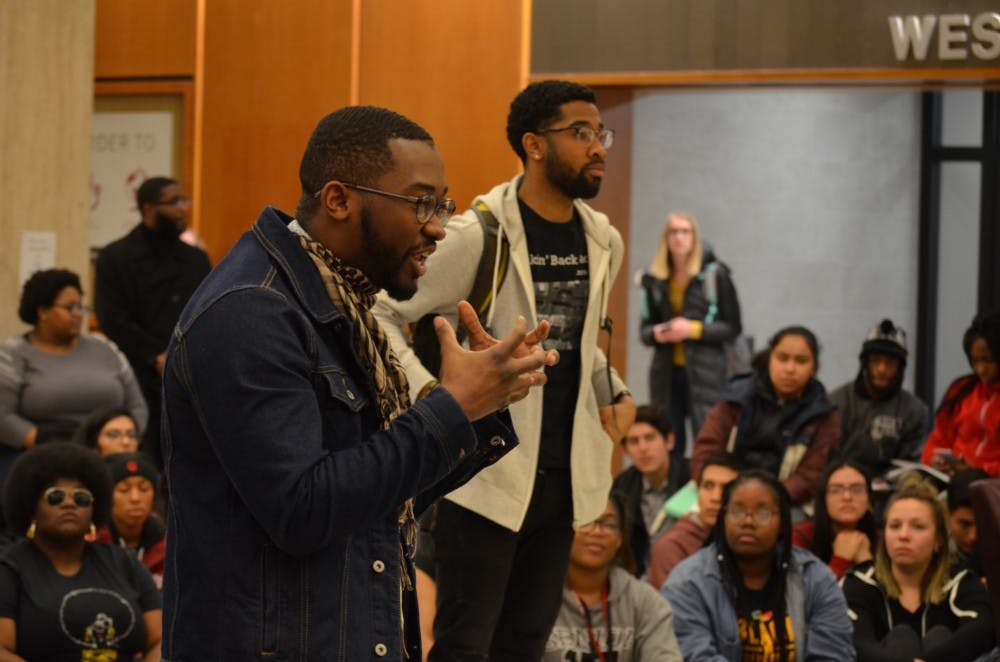
MH: How do you feel like the administration of Indiana University addresses the needs and concerns of people of color within the ranks of it as an academic institution?
C: I'd argue that Indiana University recognizes that diversity is important, however, the definitions of diversity are very different. Depending on that perspective, you could have a conversation using the same words but getting at a completely different meeting. You could argue that we're diverse, but by what metrics? If you have a system that, by default, unfortunately, does not include people of color and therefore their interests, although it might not be conscious, it has unintended effects by not including people of color. We have to critically look at if we are for all. And I know that people of color are not highly represented in Indiana, but there's a disturbing disparity between the percentage of people of color attending this University and the percentage that actually live in Indiana.
MH: What's a word that you keep in mind moving forward throughout either your time here at IU or even in preparation for your future career?
C: Transcendence. When I was in high school I ran track and hurdles. There were literal physical obstacles that you could feel approaching, and my thing is that understanding that my identity as a black male makes it to where there are hurdles and expectations of me. Therefore, transcending those expectations. Understanding that, whatever I do, if someone sees me in a negative light, they will not be getting the pleasure of looking at me and having those thoughts confirmed. That's what transcendence would be for me moving forward.
MH: For you, you appear to have a strong sense of style. At once you're able to express yourself as an individual yet still get down to work. Again, looking to the future how is this vital for you?
C: I sort of look at my wardrobe as my armor considering the fact that people will look at me very differently if I go out and dress a certain way. If I can somehow subconsciously control people so that I can enhance my humanity but also build connections with something that I'm going to do, then great. Honestly some days it's just easier, too, and having a family that's involved in the church, you always wear your church clothes on Sunday. Additionally, I'm blessed that I have a cousin who's a seamstress, so it just so happened that I was in this nexus of having all these clothes that fit me and happened to look nice, so (laughs) I could go to a higher level and say that I want to humanize myself with the clothes that I wear, but honestly it's just easier sometimes!
- -
Media and Art important to Calvin in his own words:
"Ta-Nehisi Coates is not here to comfort you." The Ezra Klein Show Vox.vom: This interview focuses on the writer's perspectives on race and critiques of general assessments of progress.
"Nikole Hannah-Jones" The Atlantic Interview The Atlantic: As a Macarthur genius grant recipient, Ms. Jones discusses how education and race create many distortions we experience in the educational field.
"In the Woods" Lore Podcast: The podcast focuses on historical folklore based on reality with stories detailing mysterious events. This episode, in particular, discusses human's interactions with the woods and the creatures that may lurk behind the foliage.
NoSleep Podcast: Just pick anyone, you'll be sure to leave with an eerie, chilling feeling.
The Daily, The New York Times: Listening to this podcast is an integral part of my daily ritual. Updated every weekday, each episode selects a single news story to deeply analyze and present in a both entertaining and informed format.
